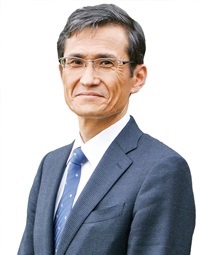Foreign language education at Hiroshima University is focused on developing the operational skills needed by highly qualified professionals and researchers in the global arena. The primary aim of the Institute for Foreign Language Research and Education (FLaRE) is twofold: to provide high-quality instruction, and to support the foreign language learning of all students and staff at Hiroshima University.
To ensure the highest standard of foreign language education, it is essential to maintain a high level of excellence as a research institute. To this end, we research a broad range of topics in the field, disseminating information and sharing our insights through academic conferences and faculty development seminars. Additionally, we support our local community and wider society by offering refresher courses for current English teachers.
My message to all students is this: Learning a foreign language takes time and effort, but it will enrich your life immeasurably by opening your eyes to a whole new world. At FLaRE, we are committed to helping you excel in foreign languages and play an active role in a variety of fields. Please take full advantage of the Institute for Foreign Language Research and Education.
Koichiro Ozawa******************************
Director, Institute for Foreign Language Research and Education, Hiroshima University

